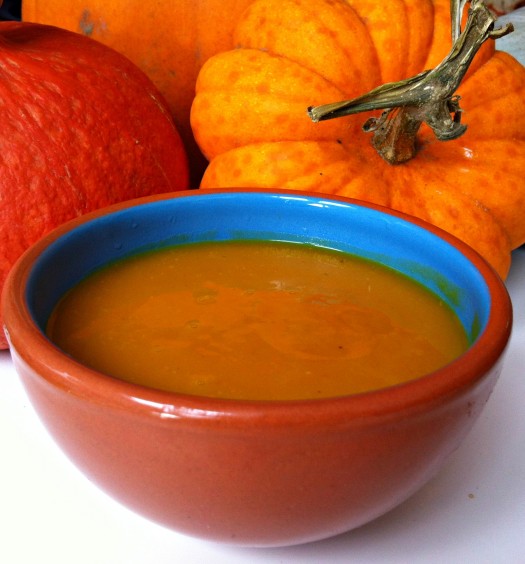Key dietary and lifestyle factors to support your immune system
A strong immune system is paramount for it to be able to do it’s job – that of patrolling the body and combating invaders! There are many factors to building immunity, with certain things we do that suppress our cells and others that can enhance function. Read on to see our best tips for keeping us healthy. And if you haven’t already downloaded it, there is a link below to our Rainbow Fruit and Veg Chart, one of the best tools to help provide the immune system with the nutrients it needs to do its job!
Drink plenty of fluids. Having adequate fluids supports all bodily functions, including the immune system. Herbal teas, turmeric tea, soups (made with colourful veg, herbs and spices) and broths (to help support the gut) are all great immune supportive fluids but avoid concentrated fruit juices and soft drinks as these can actually suppress the immune system. Fresh juices can contain vitamins and minerals (such as vitamin C) but keep portion sizes to around 120 mls to avoid sugar surges that can be detrimental to our immune defence systems.
Avoid sugar as much as possible. This doesn’t just refer to sweets and cakes but also refined flours and grains as these are quickly turned into sugar in the body. Research demonstrates that sugars not only directly impact the gut microbiome, but can suppress the immune system for up to 5 hours after eating so if you do feel under the weather, the first thing we suggest is to ditch the sugar.
Ensure you eat adequate protein with each meal. Proteins are necessary for the immune system to work properly. Your immune system is made up of proteins and requires protein to build new immune complexes such as antibodies. Good sources are lean animal protein such as grass fed beef, lamb, poultry, dairy, fish and shellfish and plant-based (nuts, seeds, legumes, soy) proteins. You can also add a protein powder such as whey, pea or hemp to smoothies.
Eat a rainbow every day! Colourful fruit and veg contain an abundance of phytonutrients that help protect us and boost the immune system. The different colours and different phytonutrients signify varied benefits, which is why we focus on eating a rainbow every day rather than just 5 portions of the same food. If you haven’t already, you can download our rainbow chart, a really useful tool that helps chart your rainbow fruit and veg intake over the week. Kids and adults both love this visual chart!
Be liberal with garlic, onions, herbs and spices. Garlic and onions have antimicrobial properties and are fantastic for helping to beat the bugs. You’ll need to crush the garlic to release its powerful compound (allicin) about 10 minutes ahead of using it because allicin is deactivated by heat; chopping in advance allows time for maximum allicin production – or just eat some garlic raw in dips and dressings. Herbs and spices, although used in smaller quantities, can often be just as potent in terms of nutrients as fruit and veg. If you feel your immune system needs a little boost then start loading your food up with herbs and spices: turmeric, rosemary, basil, oregano, sage, ginger and thyme can all be particularly beneficial.
Feed your gut microbiome. 70-80% of our immune system is located in our gut so it stands to reason that a healthy gut microbiome is vital for our immunity. We have ten times more microbes in our gut than cells in our body so in effect to support immunity, we should be eating according to what our microbiome needs rather than what we think we need! Rainbow Foods with high phytonutrient content (coloured plant foods), probiotic foods (e.g. fermented foods such as olives, live yogurt, sauerkraut, kimchi, kombucha, kefir) and prebiotic foods (e.g.asparagus, leek, chicory, artichoke) all are good ‘feeders’. Using a stool test to help evaluate the microbiome and to help identify potential pathogens, overgrowths and assessing ‘leaky gut’ likelihood can be very helpful in helping to understand factors that may be constantly triggering our immune system and ability to fight bugs.
Increase cruciferous vegetables. These include rocket, bok choy, broccoli, Brussels sprouts, cabbage, cauliflower, kale, horseradish, mustard, radishes, watercress, kohlrabi, wasabi and broccoli sprouts. They are not only an excellent source of preboiotics (food that helps the good bacteria in our guts to flourish) but also contain compounds that can enhance our immune systems.
Get sufficient sleep. Ok this is often easier said than done but it’s so important, particularly when our immune system is challenged. When we sleep we rebuild and repair, offering our body a chance to heal. Better sleep also helps to regulate cortisol levels, helping to manage inflammation in the body. So do whatever works for you to get better sleep – herbal tea, a warm bath, a good book, ditching the screen time, caffeine or chocolate before bed or by boosting intake of calming foods and/or supplements.
Assess your work life balance. Again an easy recommendation in principle but hard to implement. But we need a good work life balance to ensure that we have adequate relaxation time and that we have tools to handle the inevitable stressors that arise in life. Stress imbalances our cortisol levels and lowers an immune compound called Secretary IgA that is secreted by mucosal cells, particularly in the gut. A low Secretary IgA means that we’re more likely to succumb to infections and bugs. In the EDLW Clinic we routinely measure both cortisol levels and SIgA – and then work out a plan to support levels of both, helping to support our ability to fight the bugs.
Get regular exercise. But don’t overdo it! Exercise is vital for helping the lymphatic system to circulate and ensuring your immune system is patrolling your whole body. However too much can actually lower immune defences leaving us more vulnerable to infection. How much, and what type of exercise is beneficial versus what is too much, is going to be unique to you and your own health situation.
Eat your immune supportive nutrients: Certain nutrients are more helpful than others to support immunity: Vitamin A, D, C, E, selenium, manganese and zinc. Over winter months when our Vitamin D levels can plummet due to lack of sunshine, knowing your level (via a simple test) and supplementing accordingly can, in our clinical experience, be a light bulb moment for supporting immune function. If you don’t convert beta-carotene well to Vitamin A (a common genetic ‘SNP’ that we can identify with testing) then you’ll need to ensure either a supplement or animal food intake of Vitamin A rather than relying on high beta-carotene foods for Vitamin A.
Functional Medicine is a different way of viewing health and disease. It looks at the underlying root cause of health conditions and assesses your health journey so far. We pay attention to individual interactions between genetics, diet, environment and lifestyle – all factors that can influence long-term health and chronic, complex disease.
If you’re interested in working with us on a personalised plan to support your own immunity, including any of the tests that we’ve mentioned why not book in for a free 15 minute Discovery Call to see what we can offer?






